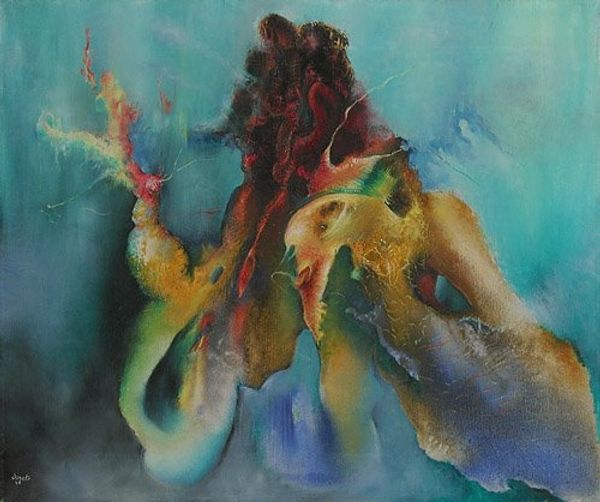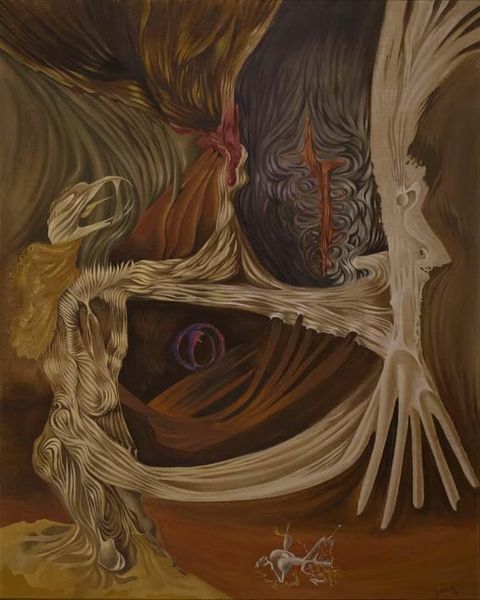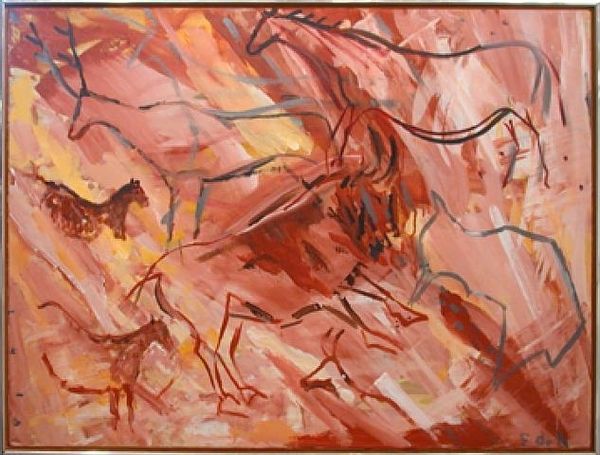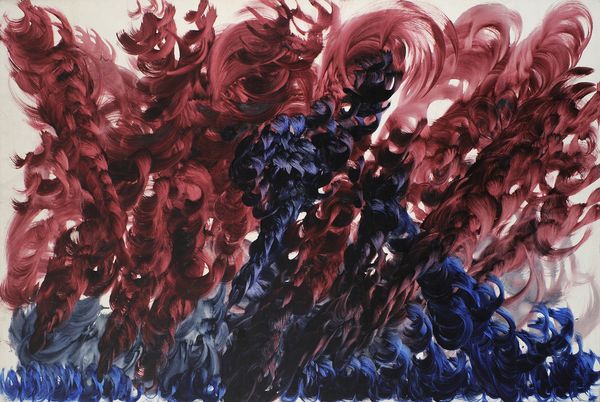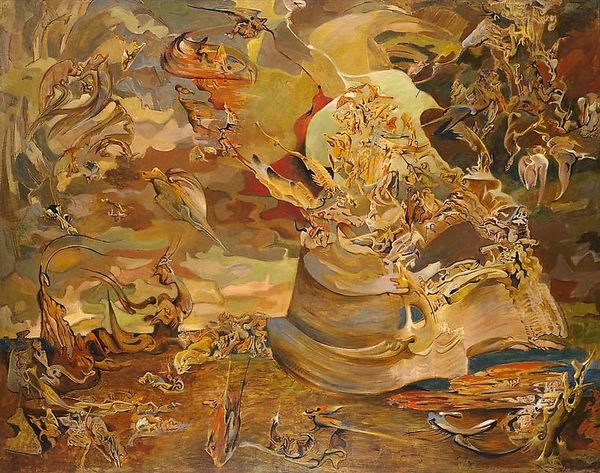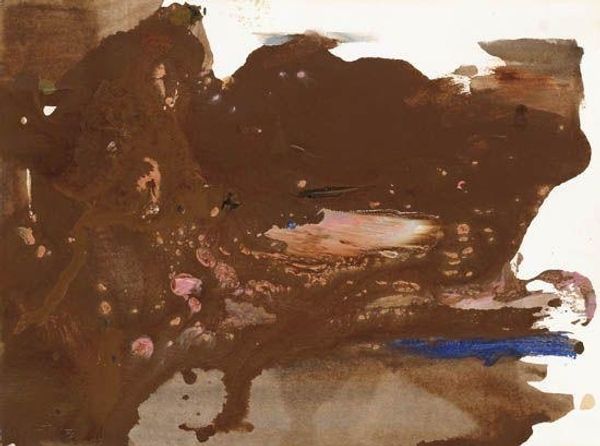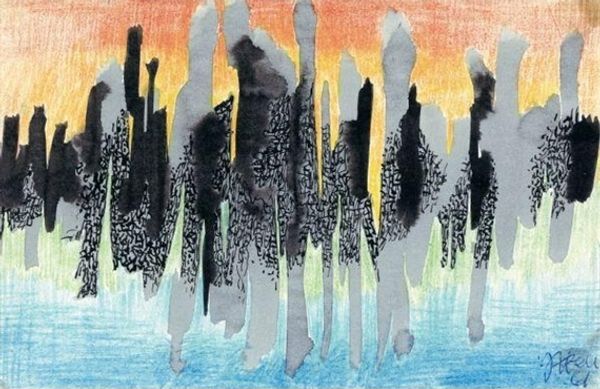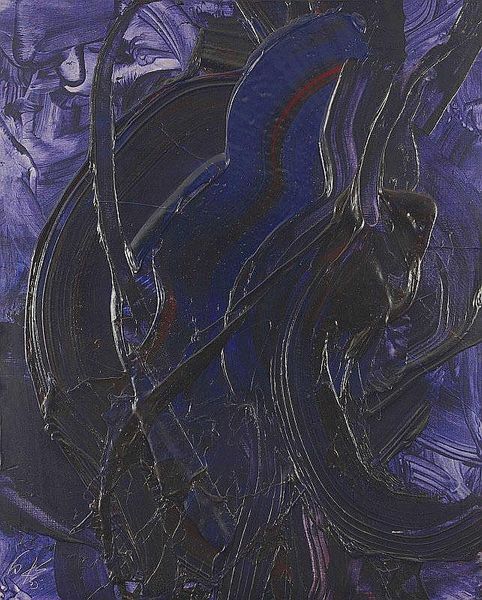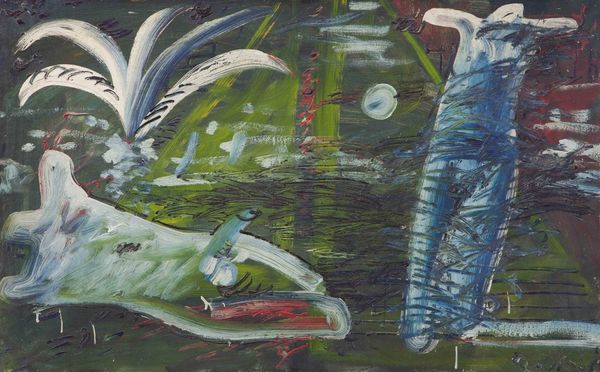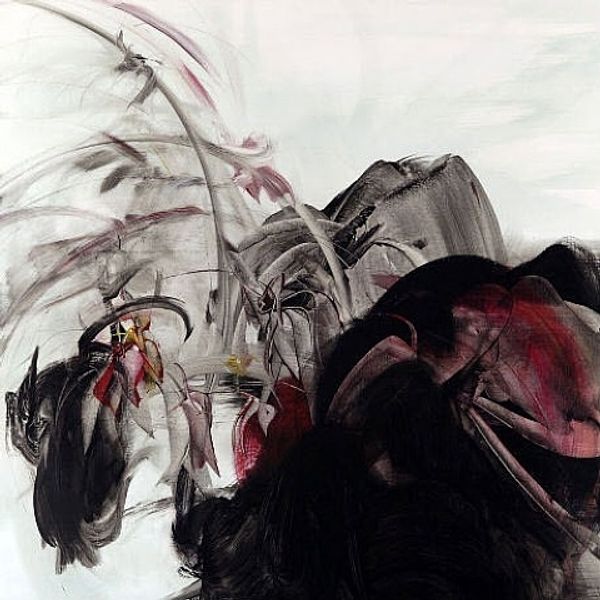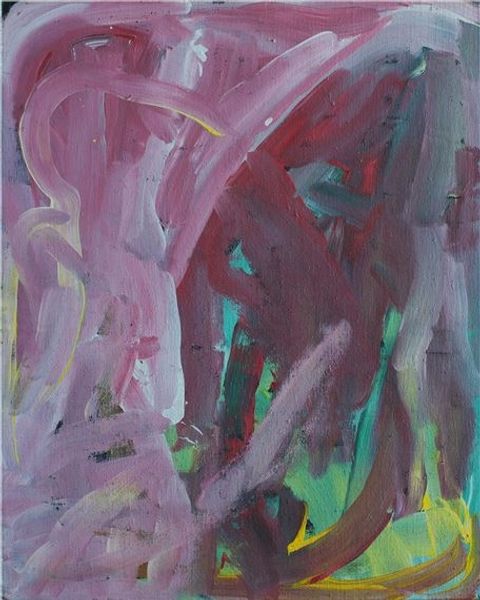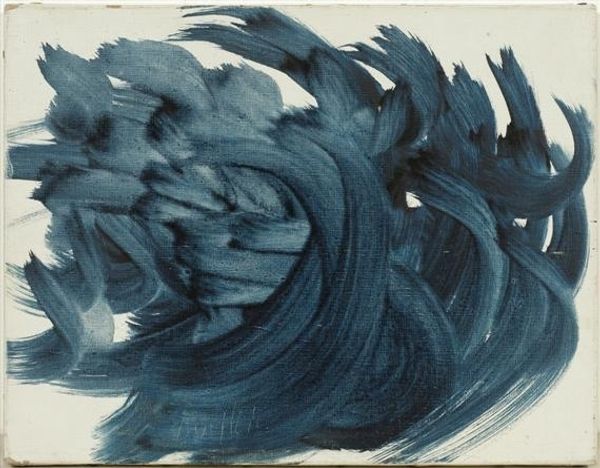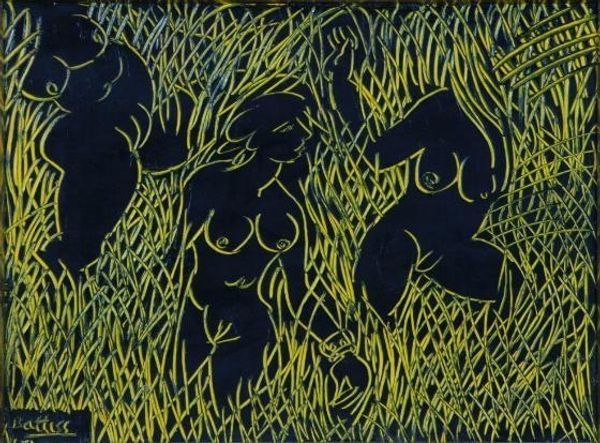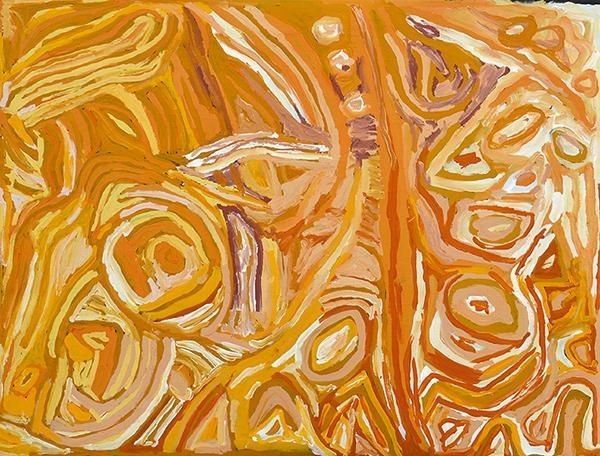
Copyright: Rene Duvillier,Fair Use
Editor: So, here we have René Duvillier's "Cers I" from 1961, likely acrylic on canvas. It's definitely an abstract expressionist piece, and my first impression is of swirling wind currents... maybe turbulent weather. What strikes you when you look at this work? Curator: The physical act of painting is really foregrounded here. Look at the visible strokes, the layering. This isn't about illusion, it's about the materiality of the paint itself, right? Duvillier seems less interested in representing "wind currents" and more in *presenting* the behaviour of viscous substances. What can we tell about his process? Editor: Well, the swirls do seem intentional, not haphazard, almost like he planned the composition. I wonder about his tools. Did he use brushes of varying sizes or perhaps palette knives to achieve the textural effects? Curator: Exactly. We should also think about the *making* of Abstract Expressionism more broadly. Post-war, new paints become available, industry improves... Abstract Expressionism might have a spiritual agenda, but it's entirely dependent on developments in materials technology. It also shifts the power dynamic between art and craft since both rely on technique, materiality, and experiment. How is Duvillier using his medium to express... or even suppress... emotion? Editor: I see what you mean. Thinking about the labor and industry behind it takes away from some of the "artistic genius" idea, but also makes me appreciate the painting from a fresh, material perspective. It’s not just an outpouring of emotion but also the result of specific materials meeting the artist's choices. Curator: Right. We might typically interpret the brushstrokes as conveying movement, sure, but the work also invites us to consider the labour, production, and consumption of materials. What implications might that have on the definition of art? Editor: That's a really interesting perspective; I hadn't considered all of that. It definitely gives me a new appreciation for the process behind the art. Curator: Agreed. There is something to be gained in thinking about all this abstract work not as "high art", but more as a commercial material result of culture.
Comments
No comments
Be the first to comment and join the conversation on the ultimate creative platform.
